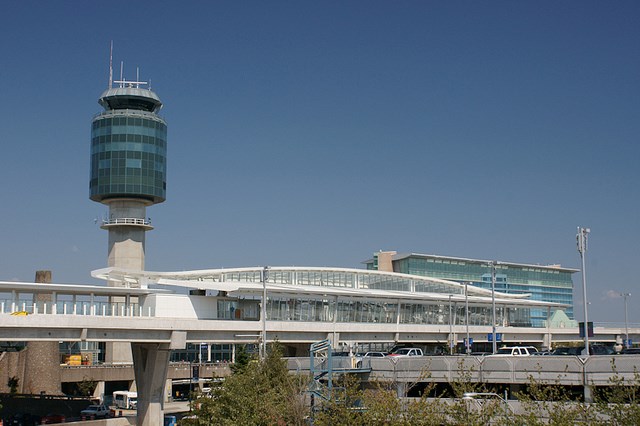A recent court decision to uphold the Property Assessment Appeal Board’s (PAAB) ruling on Nav Canada properties on Vancouver Island, does not bode well for Richmond.
Nav Canada, an organization that runs civil air traffic control in Canada, won a decision to have its Island property assessment significantly reduced. The organization argued that the property couldn’t be used for anything else.
Nav Canada has also appealed to the PAAB to reduce the value of its land at YVR from $9.9 million to $20.
If the appeal is successful, Richmond would lose an estimated $80,000 in annual taxes.
Mayor Malcolm Brodie called the situation ridiculous.
“Just because you have a unique use for a building or some property and it’s zoned accordingly, to say it has no value is just fiction,” Brodie said.
But the Nav Canada situation is the tip of the iceberg.
In fact, Richmond, Vancouver and other municipalities are facing another tax blast that could blow a multimillion-dollar hole through city budgets.
In September, the B.C. Assessment Authority lost a PAAB ruling to a developer.
In that case, the decision went in favor of Amacon, which launched the assessment appeal regarding lots it owns in Vancouver valued at $3 million to $4 million each. The properties currently house small retail outlets and parking lots, but Amacon plans to develop them into high-density residential and retail.
In the ruling, PAAB agreed with an argument put forward by an appraisal firm that the land should be taxed based on the existing commercial property, not on future development potential, and that a residential property tax rate, which is 4.5 times less than the commercial rate, be applied on future development. The lower assessment would save Amacon more than $200,000 a year.
B.C. Assessment has appealed the decision to B.C. Supreme Court, but if the PAAB ruling stands, it would affect development properties in Richmond and across the Lower Mainland. Estimates say total tax revenue in play is in the tens of millions of dollars.



